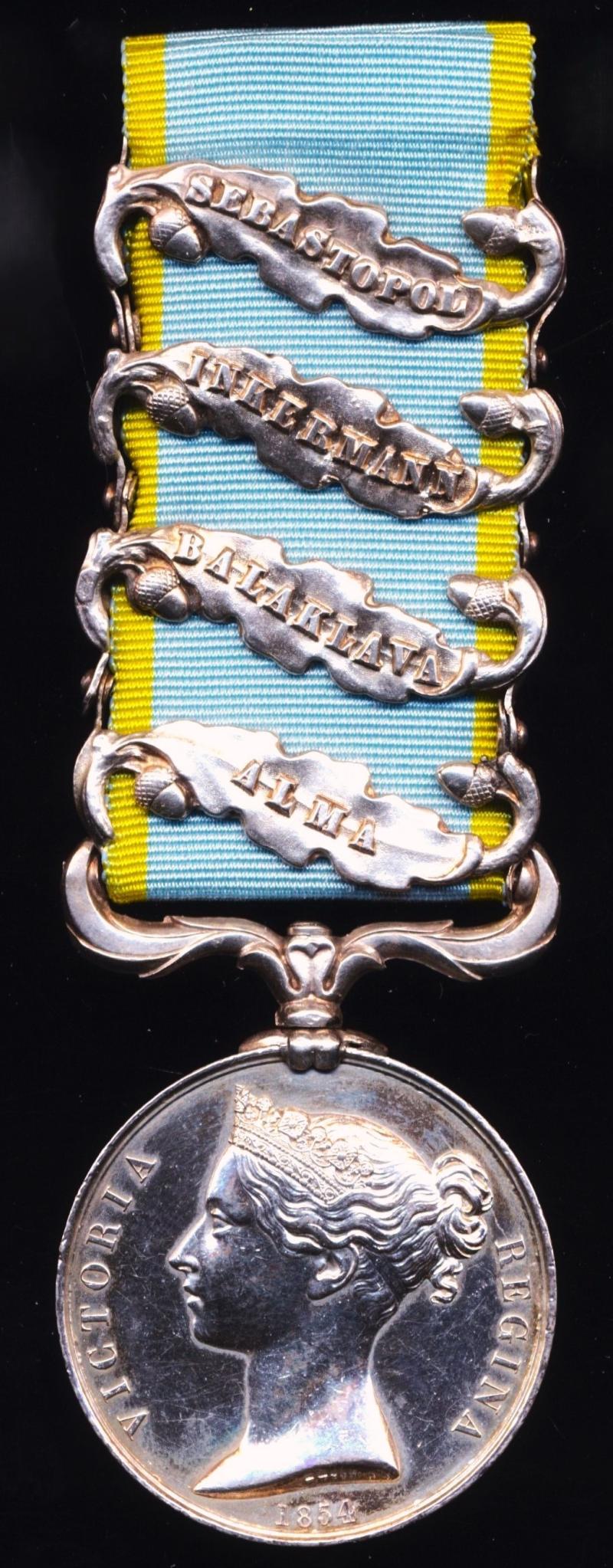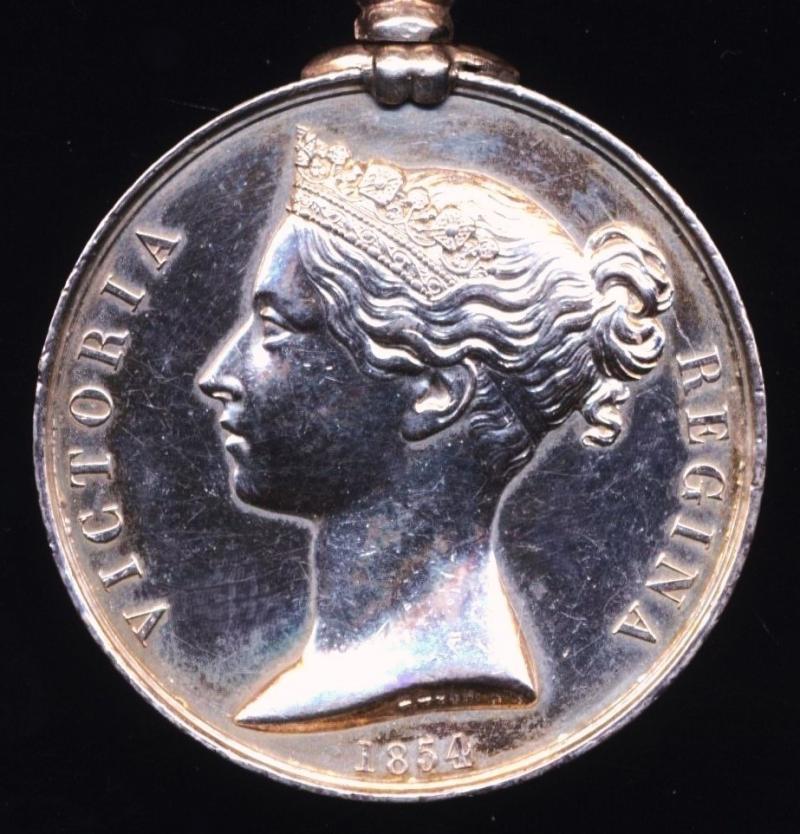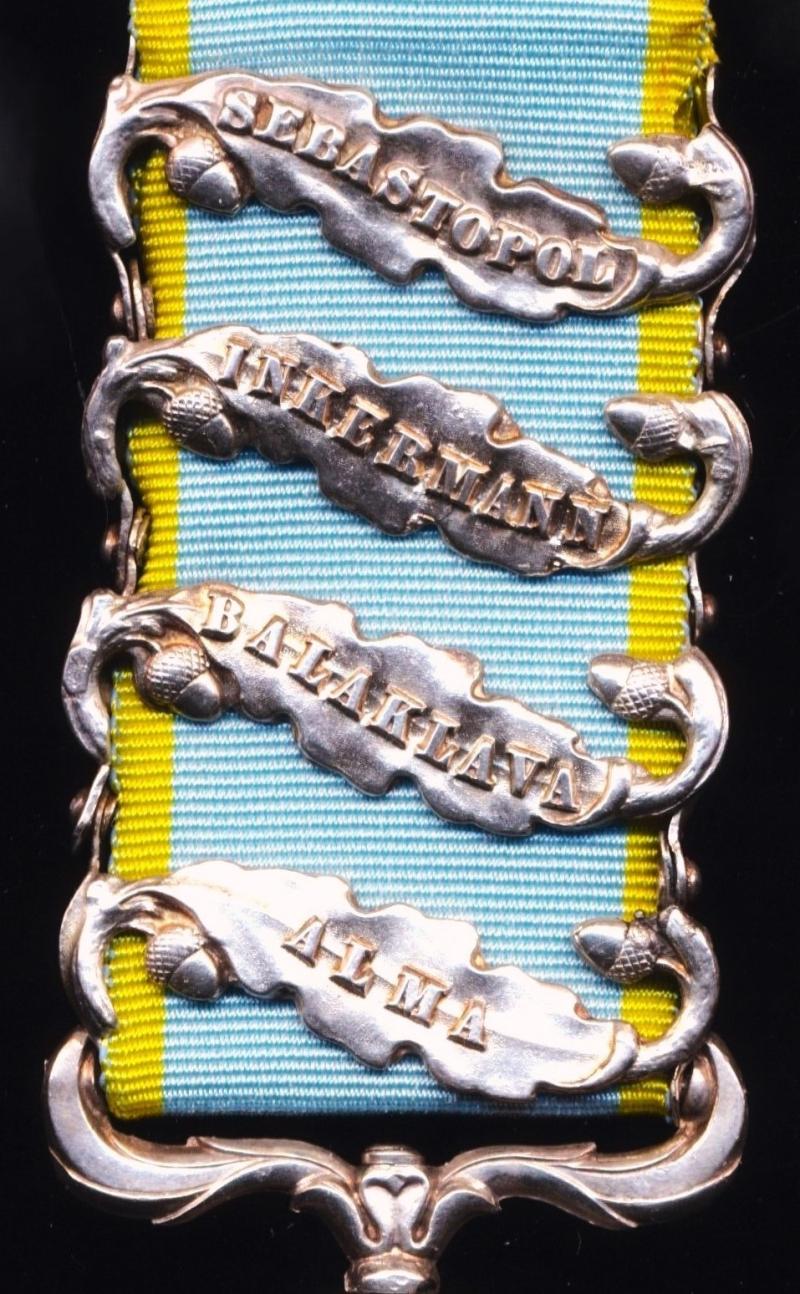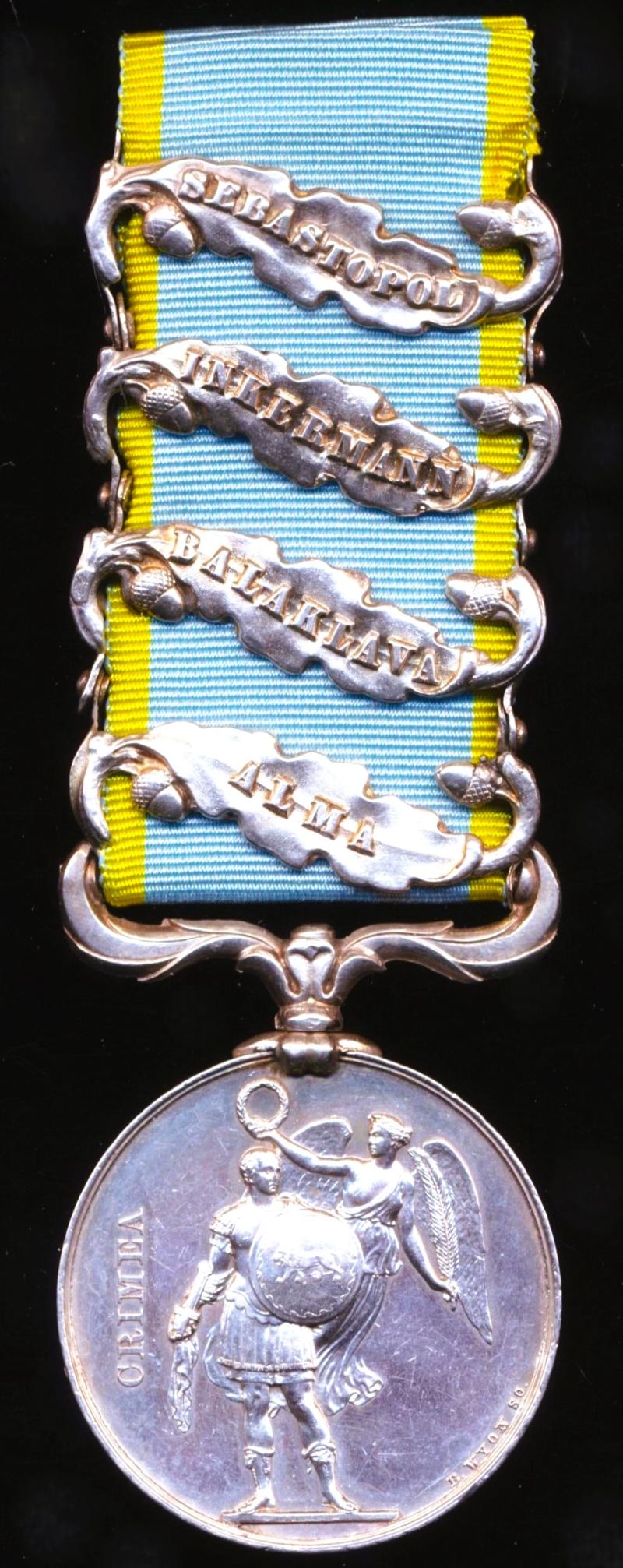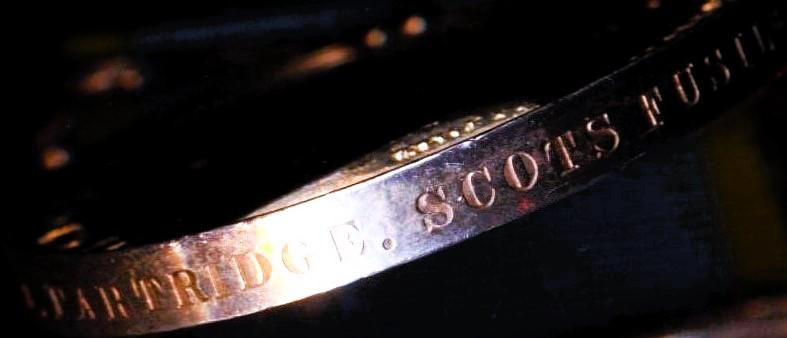Crimea Medal 1854-56. With 4 clasps, 'Alma', 'Balaklava', 'Inkermann' & 'Sebastopol'. Officially impressed (J. Partridge. Scots Fusilr. Gds.)
The medal with officially impressed naming
Died on Active Service: Private James Partridge 1st Battalion Scots Fusilier Guards, died on active service during the Crimean War, the recipients extant service papers blandly referring to the Guardsman's death as;
Quote,
Died in the East 23rd Nov 1854
Unquote.
Medal and clasps verification: The medal and all 4 x clasps confirmed as entitled per the respective campaign medal roll of the 1st Battalion Scots Fusilier Guards per below cited reference sources:
- Crimea Medal with 4 x clasps: WO 100/25
James Partridge, son of Edward Partridge & Ann Partridge, was a native of the parish of, Goodrich, Ross, Herefordshire, England, where he was born in 1831 (baptized on 16 February 1831). Described as a 'Shoemaker', James, who was 19 years & 9 months of age, and measured 6 Feet in height - enlisted in the British Army at, Gloucester, England on, 31 October 1850, on which date he was posted to the Royal Regiment of Artillery and given the appointment 'Gunner & Driver'. His service papers record that he had signed for a 'Bounty' of £5/15/6. James is recorded in the 1851 National Census for England & Wales, serving at the Royal Artillery Barracks, Woolwich, Greenwich, England, at which time he was serving with the 5th Battalion Royal Artillery. Uncommonly, James subsequently transferred to the Scots Fusilier Guards, on, 31 August 1852 (his extant service papers refer), having completed 1 year and 305 days service with the Royal Regiment of Artillery. No 4288 Private James Partridge served in the Crimea with 1st Battalion Scots Fusilier Guards from 28 February 1854, until his death on, 23 November 1854. His services paper record that he was 'Present at the Battles of the "Alma" "Balaklava" "Inkerman" & siege of "Sevastopol'. In total James Patridge had served 4 years & 24 days 'With the Colours', of which he had served 2 years & 84 days with the Scots Fusilier Guards
Based on conclusive existing genealogical records (including Herefordshire Baptism records, and National Census returns for England & Wales 1841 & 1851) it is evident that James Partridge had requested the transfer to the Scots Fusilier Guards to join his elder brother, No 3532 Private George Partridge (born in the parish of Goodridge, Ross, Herefordshire, England, and who was baptized there in 1828) who had earlier joined the 1st Battalion Scots Fusilier Guards, and is shown serving with the 1st Battalion Scots Fusilier Guards, at Portmann Street Street Barracks, Marylebone, London, at the time of the National Census for England & Wales in 1851 (wherein he is shown with place of birth, 'Hereford, Goodrich') and who was severely 'Wounded-in-Action' at the battle of 'Inkermann', on, 5 November 1854, and subsequently 'Died' in the Crimea (the medal roll entry's for both George and James Patridge show the exact same reference under 'Remarks' viz WO/17/12/56 - which is the War Office lists including 'casualties' prepared by the 'Office of the Commander in Chief: Monthly Returns to the Adjutant General). Note the proximity of the dates between the severe wounds and death between the two brothers that served in the 1st Battalion Scots Fusilier Guards during the Crimean War, and a poignant case of two brothers dying in foreign fields, within the same month, in November 1854
The service papers for James Partridge are extant and accessible at The National Archives
A desirable and choice condition Crimea Medal to a confirmed casualty, and one of a 'brace' of brothers who laid down their lives for Queen and Country while serving with 1st Battalion Scots Fusilier Guards in the Crimean War
Condition: About EF
Code: 24307



